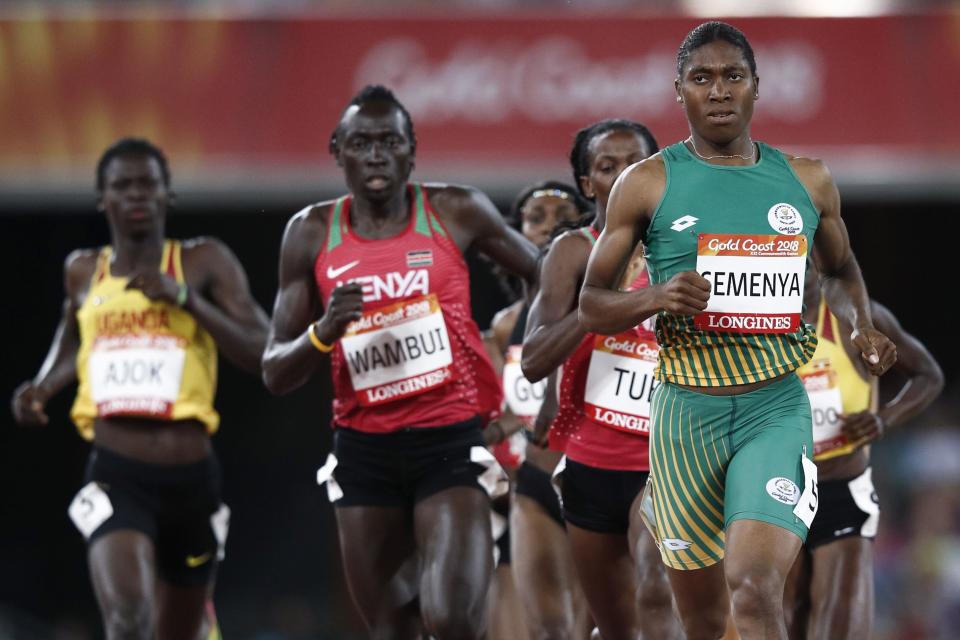IAAF will ignore court by applying testosterone rules, further impacting Caster Semenya
The Court of Arbitration for Sport (CAS) handed down a landmark ruling Wednesday with certain caveats and concerns. While the court ruled against two-time Olympic champion Caster Semenya, determining women with naturally high testosterone levels need to take hormones to suppress it for competition, it also noted “serious concern” over implementing it.
Within 24 hours of the ruling, the International Association of Athletics Federations (IAAF) announced it will go against those concerns and recommendations. It gives Semenya’s argument she is being targeted further life.
CAS rules in IAAF’s favor with concerns
Semenya, a South African runner with two golds in the 800m, has a naturally occurring higher level of testosterone than the average woman. The IAAF subjected her to sex tests throughout her career and proposed testosterone limits. Semenya, 28, took the organization to court for discriminatory practices.
The highest court in international sports ruled it was discriminatory, but was necessary to preserve the “integrity” of certain women’s division running events.
Those events consist of everything up to and including the 800m. The CAS voiced concerns on the 1,500m and everything longer. In its ruling, the court advised IAAF to pull its testosterone limits on long-distance events until it could provide concrete evidence higher testosterone is an advantage in them.
IAAF ignores court on 1,500m
IAAF president Sebastian Coe announced Thursday morning the organization would ignore that part of the ruling. He answered two questions, briefly, and did not speak any more on it.
Asked a day later at a news conference in Doha, Qatar, if the IAAF would heed that advice from sport’s highest court, Coe gave a one-word answer: “No.”
In a column for Yahoo Sports, Leander Schaerlaeckens details the specifics of the rule and where the typical woman and man fall on the testosterone level spectrum. Women typically have levels under two nanomoles per liter — the IAAF limit will be five — while men range from eight to 30.
The restrictions go into place May 8, leaving one last race before women with what is called “differences of sexual development” have to take hormonal suppressants to compete. The Diamond League meet is in Doha, Qatar, on Friday.
Francine Niyonsaba of Burundi has also publicly announced she has a testosterone condition and will be impacted by the court’s decision.
Decision puts renewed focus on targeting Semenya
Semenya released a statement that reads, in part:
“I know that the IAAF’s regulations have always targeted me specifically. For a decade the IAAF has tried to slow me down, but this has actually made me stronger.”
As The Associated Press noted, the IAAF’s decision on implementing the testosterone limits for the 1,500m, despite the CAS ruling, puts further focus on the idea Semenya is being targeted.
The runner broke onto the scene at the 2009 world championships with a gold in the 800m. She won the event at the 2012 London games as well as the 2016 Rio de Janeiro games after the testosterone regulations were reversed in time. She has three world championship golds.
She switched to focus on the 1,500m around 2016, winning that year in the African Championships. She won gold at the 2018 Commonwealth Games and bronze at the 2017 London Olympics.
The International Olympic Committee (IOC) uses IAAF regulations and Semenya would have to take hormones to compete in either of her events in the women’s division. Her next option is moving up to the 5,000m.

More from Yahoo Sports:


